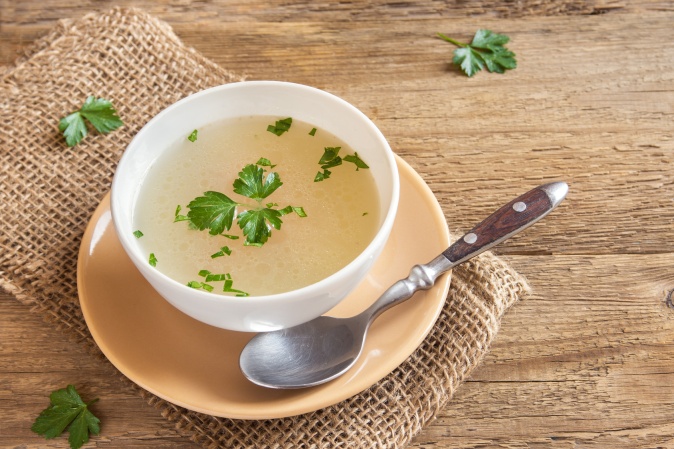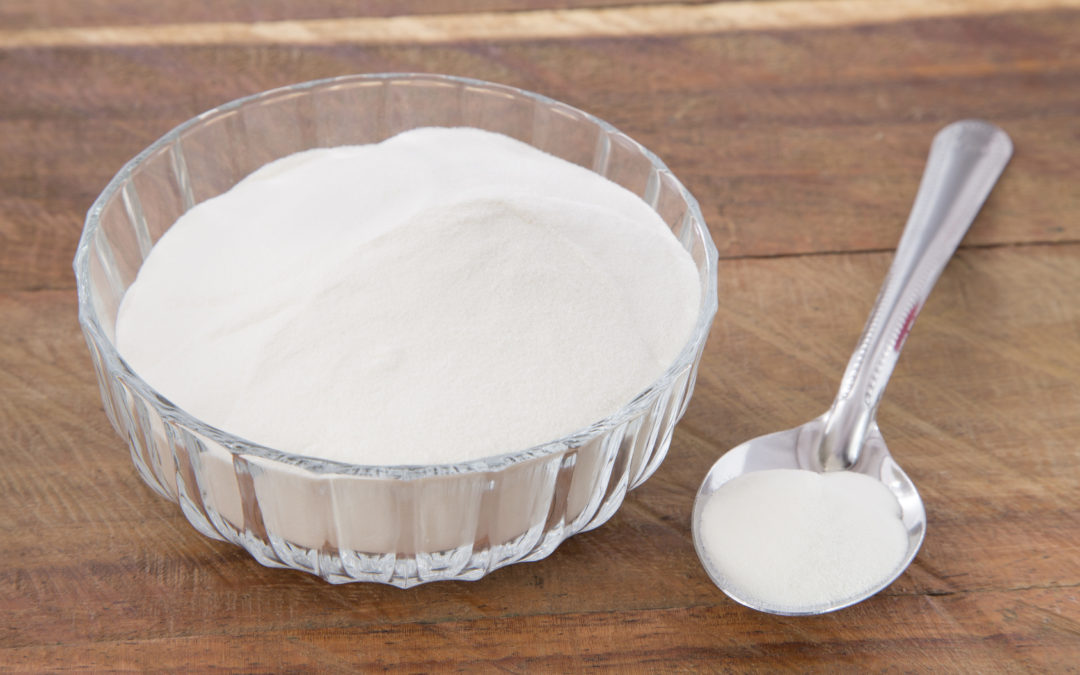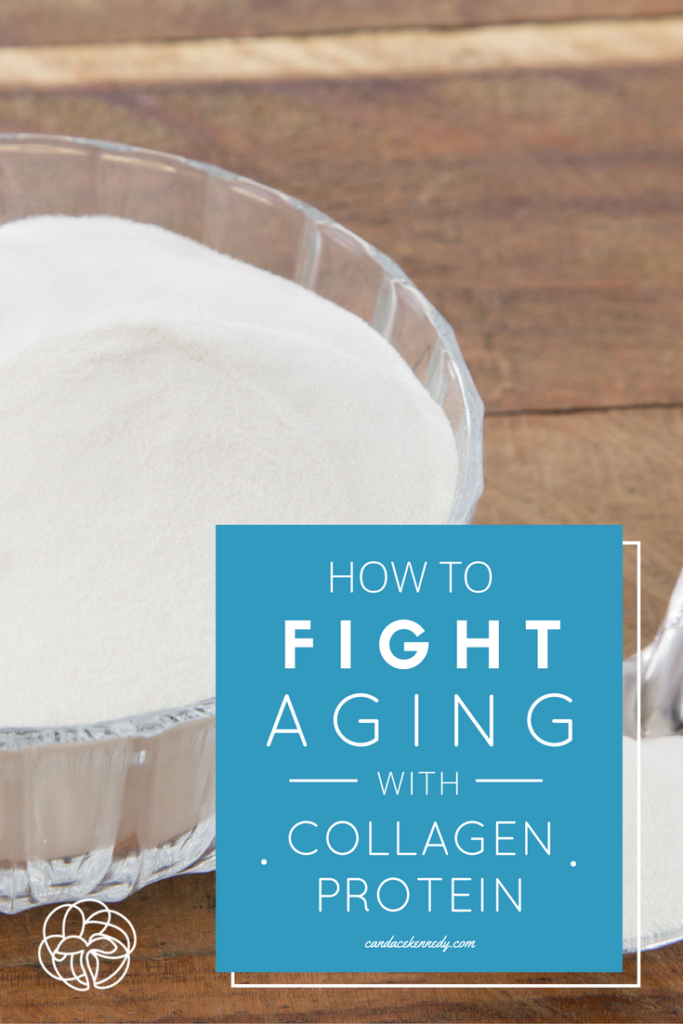If you have no concerns about improving skin elasticity and appearance, joint health, or quality sleep, you can skip this post. If these topics interest you, keep reading. You may have already seen some hype around collagen protein powder and what it can do to increase your body’s own collagen production, improve the appearance of skin, and support other aspects of overall health. But are these claims warranted? Let’s see what the science says.
In this article, you’ll learn about what collagen is, how it can benefit your skin and health, and ways to add collagen to your diet.
What is collagen?
Your body produces collagen and it is the most abundant type of protein in your body. Collagen is made up of the amino acids glycine, proline and hydroxyproline. It plays an important role in skin elasticity and bone and connective tissue health. As you age, your body’s collagen production declines, leading to things like wrinkles, weaker connective tissue and osteoporosis.
You can also get collagen from dietary sources, finding it exclusively in animal tissue, including bones and connective tissue. People used to get collagen regularly in their diets. That’s when we ate the, nowadays, less-popular parts of animals. These parts include the cuts of meat that contain a lot of connective tissue, making them tougher. In today’s Standard American Diet, these parts are mostly thrown out.
When you cook foods rich in collagen (a whole chicken in the slow cooker, for example), it will extract the collagen in the form of gelatin. Gelatin has all the same health benefits of collagen, and the same amino acids, and will solidify in cooler temperatures. Take the gelatin one step further. Process the gelatin even more, and pretty intensively, and you get hydrolyzed collagen, or collagen hydrolysate.
This is not the typical “processed” food that I typically tell clients to run from. Hydrolyzed collagen has the same amino acids and nutrients as native collagen and gelatin, in an easily absorbable form.[1] For most people, collagen hydrolysate is easier to digest than gelatin. This allows you to access all the benefits of dietary gelatin and collagen, without having to gnaw on raw tendons.
The benefits of collagen:
Improve the health and appearance of your skin
When you eat collagen hydrolysate, the nutrients and amino acids are absorbed into the bloodstream and then redistributed throughout your body, especially to the dermis (the thick layer of tissue below the epidermis). Studies show that these amino acids and collagen peptides can stay in the dermis for up to 14 days![2] What does that mean exactly? While collagen is in the dermis, it does two things. First, the amino acids provide your skin with the building blocks to form collagen and elastin. Second, peptides from the collagen can stimulate the production of new collagen, elastin and hyaluronic acid.[3]
Here are a few other things that collagen can do for your skin:
- Improve your skin elasticity [4, 5]
- Provide hydration for your skin and reduce the appearance of wrinkles [6]
- Slow or reduce aging-related changes to the skin [7]
- Promote tissue repair [8]
- Activate protection against UV-damage and photoaging [9]
Improve your sleep quality
Glycine, one of the primary amino acids in collagen, shows promise to help you sleep better. Low doses of glycine may improve the quality of your sleep, and improve performance the next day.
In a small study on glycine, participants reported a noticeable improvement in the quality of their sleep and less daytime sleepiness.[10] Another small human study had similar findings.[11]
Improve joint pain
If you exercise or lift weights often, you may want to consider using collagen to help manage inflammation. Studies on athletes taking collagen hydrolysate showed improvements in the athletes’ joint pain.[12] Collagen also shows promise to help improve joint disorders, including osteoarthritis.[13] One study on participants with osteoarthritis showed significant improvements in knee joint pain after supplementing with collagen hydrolysate for six months.[14] Collagen can also provide benefits to tendons, including tissue growth and repair.[15]
Another study reported that supplementing with collagen hydrolysate may be even more effective than using glucosamine sulfate. Glucosamine is a compound that occurs naturally in cartilage.[16] Glucosamine sulfate is one of the most widely-used supplements for managing joint pain and inflammation.
Other cool things about collagen hydrolysate
- It may promote weight loss by improving insulin sensitivity, and through its anti-inflammatory effects.[17]
- Glycine can promote a healthy gut and reduce inflammation.[18, 19, 20]
- Glycine plays a role in detoxification, as it can restore glutathione, your body’s most powerful antioxidant.[21] (You can learn about other foods that support detox in this post.)

Where can you get collagen?
First things first. I know you hear me say this time and again but quality matters! It is really important that you use collagen peptides that are sourced from 100% grass-fed animals.
- Grass-fed animals produce more nutrient-dense collagen. Animals fed unnatural diets, such as corn, soy, and GMOs, will not be healthy and well-nourished.
- Collagen from grass-fed animals is much lower in toxins. And since toxins cause inflammation and inflammation can lead to premature aging, well, you can do the math.
- Animal bones can store heavy metals and other nasty compounds. Grass-fed animals have much less exposure to heavy metals, antibiotics, and added hormones than grain-fed animals.
- Grass-fed animals are better for the environment and more sustainable. Well-managed animals can fertilize the soil and sequester carbon.
- When animals eat an unnatural diet, such as grains, they are much more susceptible to infections, including E. coli.
- Grass-fed animals are treated more humanely and live a much better life than conventionally-raised animals.
Now, there are a few options for adding more collagen to your diet. Do you like gnawing on bones and cartilage? Yeah, me neither. Good thing there are some easy and delicious ways to start adding collagen to your diet. Here are my top picks:
Collagen protein powder (collagen hydrolysate)
This is the primary way I get collagen. I often add collagen protein powder to my smoothie bowl. Occasionally, I’ll also add it to my morning coffee (usually just coffee, coconut milk and cinnamon). When you look for a collagen hydrolysate product, go for one that is derived from grass-fed cows or marine-sourced. Here are some great options:
- My favorite brand for Collagen Peptides is Perfect Supplements. They also have amazing gelatin that I use to make jello and gummies and marshmallows. Gelatin and collagen have all the same benefits.
Cook with collagen
Try making one of these delicious soup recipes and adding a scoop or two of collagen peptides:
- Slow Cooker Cream of Broccoli Soup
- Slow Cooker Cream of Celery Soup
- Slow Cooker Lemon and Rosemary Chicken Soup
Bone broth
Want a less expensive way to reap the benefit of collagen? Try bone broth. To make bone broth, you slow cook animal bones in water, with added spices and vegetables. The slow cooking process extracts out all of the bones’ minerals and nutrients, including gelatin. You can make your own with these tasty recipes here:
- Slow Cooker Beef Bone Broth from Nom Nom Paleo
- Healing Meals — Vegetable Scented Bone Broth from Dr. Mark Hyman
There are also several brands coming out with really high-quality, pre-made bone broths.
What are your favorite ways to get collagen protein into your diet? Please share in the comments below!
Save and pin for later:
References
- http://benthamopen.com/contents/pdf/TONUTRAJ/TONUTRAJ-8-29.pdf
- Watanabe-Kamiyama M, Shimizu M, Kamiyama S, et al. Absorption and effectiveness of orally administered low molecular weight collagen hydrolysate in rats. J Agric Food Chem 2010; 58(2): 835-41.
- http://search.proquest.com/openview/6538cd250c1987432657e92fffd03103/1.pdf?pq-origsite=gscholar, http://www.ncbi.nlm.nih.gov/pubmed/20507402
- http://www.ncbi.nlm.nih.gov/pubmed/23949208
- http://agris.fao.org/openagris/search.do?recordID=JP2009002586, http://www.ncbi.nlm.nih.gov/pubmed/24131075
- http://www.jmnn.org/article.asp?issn=2278-1870;year=2015;volume=4;issue=1;spage=47;epage=53;aulast=Borumand, http://www.sciencedirect.com/science/article/pii/S101113441400390X
- http://www.ncbi.nlm.nih.gov/pubmed/21480801
- http://www.ncbi.nlm.nih.gov/pmc/articles/PMC411359/
- http://www.ncbi.nlm.nih.gov/pubmed/19352014
- http://onlinelibrary.wiley.com/doi/10.1111/j.1479-8425.2007.00262.x/abstract
- http://onlinelibrary.wiley.com/doi/10.1111/j.1479-8425.2006.00193.x/full
- http://www.ncbi.nlm.nih.gov/pubmed/18416885
- http://www.ncbi.nlm.nih.gov/pubmed/17076983
- http://www.ncbi.nlm.nih.gov/pubmed/19212858
- http://www.ncbi.nlm.nih.gov/pubmed/16161767
- http://www.ncbi.nlm.nih.gov/pmc/articles/PMC3047656/
- http://ajcn.nutrition.org/content/76/6/1302.full.pdf+html, http://www.sciencedirect.com/science/article/pii/S0014299908003531)
- http://www.researchgate.net/publication/11490154_Influence_of_glycine_on_intestinal_ischemia-reperfusion_injury,
- http://www.ncbi.nlm.nih.gov/pubmed/12589194
- http://www.ncbi.nlm.nih.gov/pmc/articles/PMC2852991/
- http://www.ncbi.nlm.nih.gov/pubmed/23742196
Medical Advice Notice: The information presented on this website is not intended as specific medical advice and is not a substitute for professional medical treatment or diagnosis.


Is it awful that I actually do like gnawing on bones? 😛 Started drinking bone broths, too! 😀
While I’m surprised to know someone who likes gnawing on bones, this is the “no judgment zone,” so gnaw away! and great that you’re drinking bone broths also! do you have a favorite kind?
I’m trying the Osso Good bone broths, but, if I’m being honest, I find them a bit bland. 🙁 I may try making my own in the future.